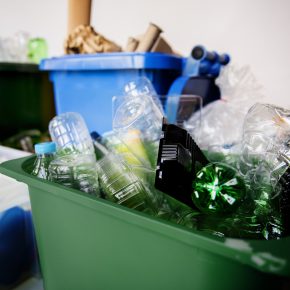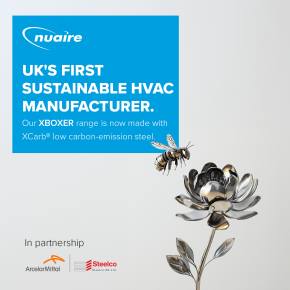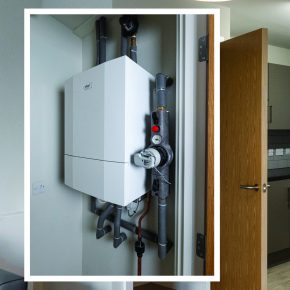
Axion proclaims ‘plastic recycling does work’
Recycling end-of-life plastic is still the best route for recovering this versatile and long-life material, according to resource recovery specialist Axion. The company argues that processing the material is the best way to preserve valuable resources and reduce negative environmental impact.
“Plastic recycling does work. Littering plastics has a negative effect on the environment so collecting household plastics for recycling helps to ensure they are disposed of responsibly.
“The recycled plastics can be given a second life in new, useful products; the idea that recycling doesn’t work is misleading.”

Polls
Prime Minister Boris Johnson told an audience of children at No. 10 in October that recycling ‘doesn’t work’ and it would be a ‘mistake’ to think society can ‘recycle its way out of the problem’.
However, Richard asserts that polls consistently show many people are trying to do their bit to protect the climate with households already sorting 45% of the waste for recycling: “Polyethylene (PET) bottles are highly recyclable if people dispose of them in their household recycling.”
Recycling plastics is an important part of tackling climate change and there are significant carbon savings to be made by using recycled plastics, he says.
“There are far greater energy costs involved in manufacturing virgin plastic. Studies have shown it takes around 75% less energy to produce a plastic bottle made from recycled content compared to new plastic.”
Axpoly
In the UK, there are some great examples of plastics recycling which contribute towards the circular economy by diverting material from incineration. In Axion’s case, their two plants process plastics from end-of-life vehicles and waste electrical and electronic equipment (WEEE) to produce their range of locally sourced Axpoly® recycled PP and ABS polymers.
Axion’s own research has shown recycled polymers have significantly lower carbon footprint than oil-based virgin plastics – up to 89% for ABS. Their 2017 Axpoly® Carbon Footprint Analysis also revealed a carbon saving of 82.5% for recycled (HIPS) and 73% for recycled (PP).
By the end of 2021, Axion’s Trafford Park facility expects to have saved up to 130,000 tonnes of shredder residue (from scrap vehicles and waste electronics) from going to landfill, having recovered around 20,000 tonnes of plastic from that volume.
Axion’s second facility at Salford further refines this recovered plastic fraction into high quality polymers with ‘good as virgin’ performance for use in a variety of product applications including automotive, construction and water treatment products.
Richard continues: “Demand for high quality recycled polymers increases year on year as manufacturers recognise the need for environmentally friendly recyclate that can replace virgin materials in new goods.”
Climate change
In the on-going fight against climate change, legislation, such as extended producer responsibility (EPR) will force the producers of materials to absorb the cost of recovery and recycling. As a result, many products today that are challenging to recycle economically will be capable of conversion into secondary raw materials for producing new items.
Richard believes making sure the packaging we need is recyclable makes a big difference, helping to limit carbon emissions, reduce pollution and create jobs.
He adds: “The tax on packaging with less than 30% recycled content will also drive the end markets for recycling. The technology to recycle the majority of plastic waste exists, but greater investment in the UK plastics recycling infrastructure and systems is required.
“There is a lot of positive change coming which will help plastics recycling, and we should put more effort into it to make it work.”
Axion works with a wide range of clients, from Government agencies and local authorities to companies in diverse commercial sectors, on the practical development of new processing and collection methods to recover value from waste resources.
For more information, call 0161 426 7731, or visit www.axiongroup.co.uk.
Twitter: @axion_group
LinkedIn: Axion Group
Contact Axion: info@axiongroup.co.uk
Visit Supplier's page
One comment on “Axion proclaims ‘plastic recycling does work’”
Leave a Reply
You must be logged in to post a comment.
Latest news

28th April 2025
Nuaire first UK ventilation manufacturer to use low carbon-emissions recycled & renewably produced steel
Nuaire has announced that its Magnelis® steel based ventilations systems are now being made from XCarb® recycled and renewably produced steel.
Posted in Air Conditioning, Articles, Building Industry News, Building Products & Structures, Building Services, Building Systems, Heating, Ventilation and Air Conditioning - HVAC, Restoration & Refurbishment, Retrofit & Renovation, Steel and Structural Frames, Sustainability & Energy Efficiency, Waste Management & Recycling
28th April 2025
Renderplas: Builders avoid costly remedial work with PVCu render beads
A pioneer of PVCu render beads, Renderplas is helping the construction industry avoid the costly remedial work associated with rusting steel designs…
Posted in Articles, Building Industry News, Building Products & Structures, Building Services, Building Systems, Facades, Posts, Render, Restoration & Refurbishment, Retrofit & Renovation, Sustainability & Energy Efficiency, Walls
28th April 2025
How Celotex’s Technical Team adds value through expert insulation support
From U-value calculations to real-world installation support, Celotex’s technical team helps construction professionals specify and install insulation with confidence…
Posted in Articles, Building Industry News, Building Products & Structures, Building Services, Insulation, Research & Materials Testing, Restoration & Refurbishment, Retrofit & Renovation, Sustainability & Energy Efficiency, Walls
28th April 2025
Ideal Heating Commercial takes extra care with the heat network at Huddersfield specialist housing development
Ideal Heating Commercial POD Heat Interface Units (HIUs) and Evomax 2 condensing boilers have been installed into Ash View Extra Care in Huddersfield.
Posted in Articles, Building Industry News, Building Products & Structures, Building Services, Case Studies, Facility Management & Building Services, Heating Systems, Controls and Management, Heating, Ventilation and Air Conditioning - HVAC, Pipes & Fittings, Plumbing, Restoration & Refurbishment, Retrofit & Renovation

I have been using recycled HDPE products for a long time and I am very satisfied with their quality and durability. Recycled HDPE is a strong, lightweight, and versatile material that can be used for many applications, such as pipes, crates, bottles, toys, and more.
It also helps to save energy, reduce pollution and conserve natural resources. I think more people should switch to recycled HDPE products and support the circular economy. What do you think are the main benefits of using recycled HDPE products?